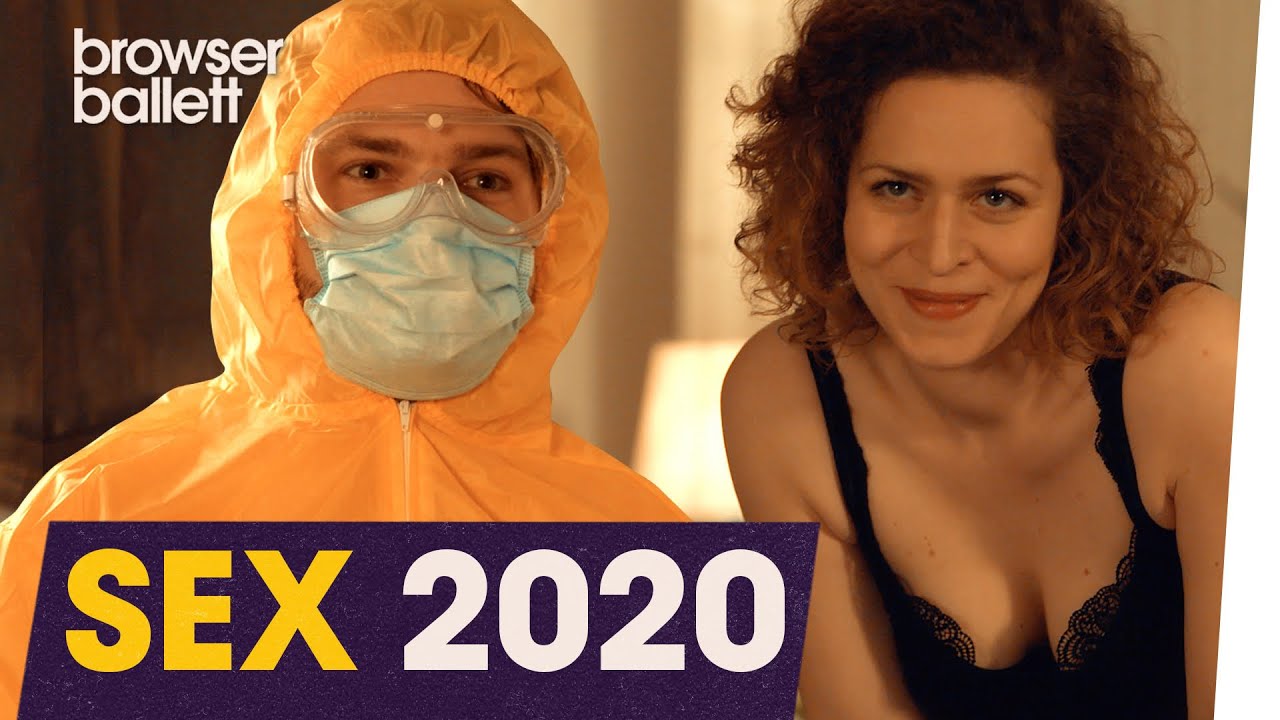15 Weird Hobbies That'll Make You Better at BDSM
At first, the offer seemed generous. Erica Sklar was in a homeless shelter and needed a more stable place to live. Victor Rivera, who oversaw a network of shelters, including the one where she was staying, said he had a solution: a spare apartment for her at his home in the Bronx.
But after Ms. Sklar moved in, she said, she realized that Mr. Rivera, whose nonprofit organization is one of the largest operators of homeless shelters in New York, had other intentions. In December 2016, he asked to see a leaking ceiling in her bedroom, then turned off the lights, pushed her against a wall and began fondling her, according to Ms. Sklar and two friends in whom she confided.
He demanded she give him oral sex, suggesting he would evict her if she refused, she said. Desperate to hold on to her apartment, she complied.
Ms. Sklar is one of 10 women who said they had endured assault or unwanted sexual attention from Mr. Rivera, The New York Times found. Even as some women have sounded warnings about Mr. Rivera — including two who were given payments by his organization that ensured their silence — his power and influence have only grown during New York’s worst homeless crisis in decades.
His organization, the Bronx Parent Housing Network, has received more than $274 million from the city to run homeless shelters and provide services just since 2017. The pandemic has intensified Mr. Rivera’s importance: As the coronavirus swept through the homeless population, the city gave his group $10 million to provide rooms where infected people could isolate and recover.
Women reported Mr. Rivera’s behavior to a state agency, a city hotline and, in one instance, the police. But he maintained his perch atop the organization.

One employee of the Bronx Parent Housing Network said that Mr. Rivera, the chief executive, forced her to give him oral sex in 2016 and then fired her, according to police records, interviews and other documents. In 2018, another employee accused Mr. Rivera of groping her and whispering sexual comments in her ear. After both women separately complained to a state human rights agency, the Bronx Parent Housing Network paid them a total of $175,000 in settlements that prohibited them from speaking publicly about their allegations, according to interviews and records reviewed by The Times.
Five of the women were living in Mr. Rivera’s homeless shelters, or had recently left, when Mr. Rivera approached them for sex, they said.
“He’s got a lot of power over a lot of vulnerable girls,” said Ms. Sklar, 49.
On Thursday, after The Times asked the Bronx Parent Housing Network about the accusations of sexual misconduct, the organization put him on leave and, at the city’s direction, moved to hire an independent investigator to examine the allegations. Mr. Rivera, 60, declined to answer any specific questions but issued a statement denying wrongdoing.
“I have always treated the women I work with at B.P.H.N. with dignity and respect. These allegations are unfair, baseless and without merit,” Mr. Rivera said in the statement. He said he was confident that the investigation would clear him and he looked forward to returning to work.
It was a rare moment of reckoning for Mr. Rivera after a decade of acting with near impunity, The Times found.

More than 78,000 people in New York City are homeless, a number that has risen to record highs in recent years and threatens to grow as the city suffers the full economic fallout from the pandemic. New York City is under an unusual and longstanding court order to provide temporary shelter to every homeless person, and it relies on dozens of nonprofit groups like the Bronx Parent Housing Network to manage shelters and help people secure permanent housing.
Last year alone, the city awarded more than $2.1 billion to these groups.
Despite this soaring spending, officials are slow to punish organizations that break the rules. In New York, a city with some of the highest real estate values in the country, officials say there is a limited number of nonprofits willing and able to run shelters.

The allegations against Mr. Rivera, which have not been previously disclosed, show the extent to which shelter providers can avoid meaningful repercussions for even serious malfeasance, a Times investigation found.
As the city’s housing crisis worsened and his organization flourished, Mr. Rivera treated his nonprofit less as a charity and more as his personal empire. He has given jobs to family members, entangled his for-profit businesses with his nonprofit, awarded contracts to close associates and enjoyed new trappings of wealth: He drove a Mercedes-Benz leased by his organization and bought a home with a heated pool north of New York City and another house in the Poconos.
“He walks about as if he’s untouchable,” said Vanessa Anderson, a former payroll accountant who left the nonprofit in 2018 and said Mr. Rivera had BDSM made sexually inappropriate comments to her.
City officials knew about some of Mr. Rivera’s financial irregularities — a whistle-blower complained about nepotism and conflicts of interest in 2017 — but still poured millions into the organization. One homeless woman told the New York Department of Social Services, which oversees shelter providers, that she had been harassed by Mr. Rivera, but the department simply passed her grievance to his organization to investigate.
To piece together the story of Mr. Rivera, The Times interviewed more than 50 current and former employees and more than a dozen women who lived in shelters run by the Bronx Parent Housing Network, and examined hundreds of pages of contracts, confidential settlement agreements, lawsuits, tax records and internal financial documents from the organization.
The Department of Social Services said it had made repeated efforts to keep the management of the Bronx Parent Housing Network on “the straight and narrow” but in general tried to avoid ending contracts with shelter providers.
“We have a legal and moral obligation to provide shelter to all those who need it, no matter what, and our first objective is therefore to resolve matters collaboratively,” a spokesman for the department, Isaac McGinn, said. Still, he said, the city would hold shelter operators accountable.
The department has referred The Times’s findings about Mr. Rivera’s financial entanglements to investigators, he said. “These additional allegations about the C.E.O.’s personal behavior are also extremely troubling and, if true, will not be tolerated,” he said.
Before The Times presented the Bronx Parent Housing Network with the allegations of sexual assault and harassment, the organization defended Mr. Rivera’s management. Through a lawyer, the group denied any fiscal impropriety, as did Mr. Rivera. He said in his statement that he had little business experience when he started the organization and had worked with the city to make it more professional.
“I have never wanted anything more than to give back to this city and help the many people who need it,” Mr. Rivera said, “because I was once one of those people.”
Mr. Rivera frequently invokes his own story of homelessness and addiction, saying that he spent much of his early childhood in a shelter and a poor neighborhood in the South Bronx. He was selling drugs at age 9, he has said in media interviews.
Before he was even old enough for a learner’s permit, he had made so much money dealing drugs that he had bought himself a couple of cars, he said in an interview in 2019 with “Realty Speak,” a housing podcast. He said he fathered a child at 15, then, in the throes of an addiction to crack cocaine, he became homeless, was incarcerated for drug possession, and later served a brief stint in state prison from 1989 to 1990 for violating probation.
After his release, he said, he vowed to change his life and quit drugs. He became involved with a group to provide low-income housing and worked with recovering drug addicts, according to a copy of his résumé. “I continue to do what I do to help society and pay that forward,” he said on the podcast.
He helped to found the Bronx Parent Housing Network in 2000 with others from his church, and focused on providing housing and services for homeless people and those with H.I.V. and AIDS. For years, the nonprofit scrambled for funding. In 2012, the year before Bill de Blasio was first elected mayor, the organization brought in $1.1 million in revenue, tax filings show. Mr. Rivera’s salary was $67,000.
An explosion in New York’s homeless population changed the group’s fortunes, and Mr. Rivera’s. Mr. de Blasio pledged to revamp the shelter system and in 2017 announced that the city would open 90 new sites. Nonprofit organizations, including the Bronx Parent Housing Network, applied to fill the demand.
Mr. Rivera was by then married to a woman also involved in homeless housing efforts in the Bronx. The couple became regulars at charity functions and Bronx political events and hosted a campaign fund-raiser for Ritchie Torres, a councilman who was elected to Congress last year, according to former staff members and an event invitation obtained by The Times. Since 2010, Mr. Rivera and his wife, Lanet Rivera, have donated more than $35,000 to local officials, campaign-finance records show.
The political contacts have been a boon to the Bronx Parent Housing Network: The group has received more than $1 million in City Council discretionary funding, a pool of money that council members award to favored nonprofit organizations, records show. Much of it has
Last updated